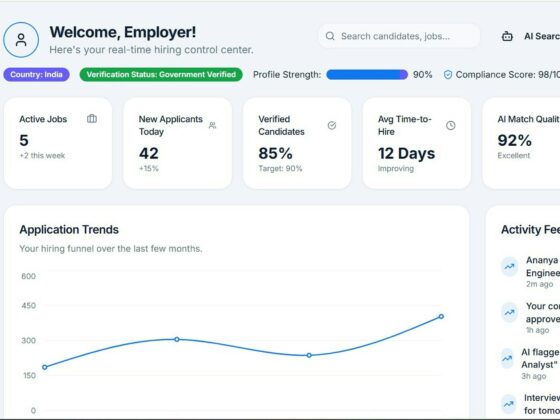
As generative AI continues to evolve, large language models (LLMs) are reshaping how people interact with information.
Platforms like ChatGPT and Gemini are not just tools. They are signals of a seismic shift in user behavior, one that challenges traditional paradigms of search, content accessibility, and brand communication. For businesses navigating this transformation, the key lies in understanding the nuances of AI optimization (AIO) and adapting strategies to stay ahead.
Here’s what you need to know, and do, to prepare for this next frontier.
A new era of search behavior
For decades, traditional search engines have been the gatekeepers of digital discovery. But as LLM-based chatbots gain traction, they’re redefining what it means to search. Unlike search engines, which rely on discrete keyword queries, LLMs engage users in dynamic, threaded conversations. This fundamental difference is not just technical: it’s behavioral.
Currently, only a fraction of total search volume takes place on LLM platforms, but the growth trajectory is undeniable. When LLM usage approaches 20% of total queries on any given interface, we’ll likely witness a tipping point: a moment when conversational AI becomes a primary tool for information retrieval. Businesses must monitor these shifts closely, not just to react but to anticipate and lead.
Content accessibility: The invisible barrier
In the world of LLMs, visibility isn’t guaranteed; it’s earned. Unlike traditional search engines that crawl the open web, LLMs cannot access content behind paywalls, login barriers, or other security measures. This creates a critical decision point for brands: Which content should remain gated, and which should be opened up to ensure discoverability?
High-value resources, such as product guides or educational materials, may warrant reconsideration. By making select content publicly accessible, brands can position themselves as authoritative voices within LLM-generated responses. In an ecosystem where presence equals relevance, accessibility is no longer optional; it’s strategic.
Speaking the language of the consumer
Generative AI thrives on semantic understanding, interpreting meaning rather than matching keywords. This shift demands a recalibration of how brands communicate. Content must prioritize clarity, simplicity, and resonance, crafted at a level understandable to an average eighth grade reader for topics outside common knowledge.
But it’s not just about readability; it’s about relatability. A disconnect between a brand’s tone and its audience’s expectations can result in missed opportunities for engagement. To succeed, brands must adopt consumer-centric language while maintaining their unique voice. This is not a compromise; it’s an evolution.
Volume over structure: Rethinking content strategy
Search engine optimization (SEO) has long emphasised structure: URL hierarchies, directory organization, and meticulous tagging. LLM optimization flips this script. For LLMs, the breadth and depth of content matter more than its structural arrangement.
This doesn’t mean abandoning SEO best practices; traditional search remains a vital channel. But for AIO, the focus shifts to creating expansive, high-quality content libraries that cover a wide range of topics. Think of it as building a knowledge ecosystem rather than a navigational map.
Navigating the analytics blind spot
One of the most significant challenges in AIO is measurement. Unlike traditional search engines, LLM platforms don’t yet provide robust analytics for query volume or share of voice. Conversations are fluid and contextual, making them harder to quantify compared to discrete keyword searches.
While emerging tools claim to measure LLM performance, this space is still in its infancy. Brands should approach these solutions with caution, validating insights before making strategic decisions. Experimentation is essential, but so is skepticism.
Recommendations for forward-thinking brands
-
Track behavioral shifts: Regularly monitor the proportion of users engaging with LLMs versus traditional search engines. Early detection of trends will enable proactive strategy adjustments.
-
Reassess content accessibility: Identify high-value content currently gated and evaluate its potential impact if made publicly available. Strategic openness can drive discoverability and authority.
-
Invest in consumer-centric communication: Rewrite or adapt content to align with natural language patterns, targeting an 8th-grade reading level for non-common knowledge topics. Ensure your tone resonates with your audience’s expectations.
-
Prioritize content volume: Expand your content library to address a broader range of topics. While structure remains important for SEO, AIO rewards depth and diversity over rigid organization.
-
Experiment with analytics cautiously: Test emerging tools for measuring LLM performance, but validate findings rigorously. Treat this space as experimental until proven methodologies emerge.
Embracing the generative future
The rise of LLMs is not just a technological shift; it’s a cultural one. As users gravitate toward conversational interfaces, brands must evolve their strategies to meet new expectations. LLM optimization is not about replacing SEO; it’s about complementing it, creating a dual approach that serves both traditional search engines and generative AI platforms.
At AKQA, we believe the future belongs to those who adapt with intention. By embracing accessibility, clarity, and innovation, brands can position themselves as leaders in this generative era, ready to shape the conversation, not just follow it.
All opinions expressed throughout this article are the author’s own and do not necessarily represent those of AKQA or its affiliates.







